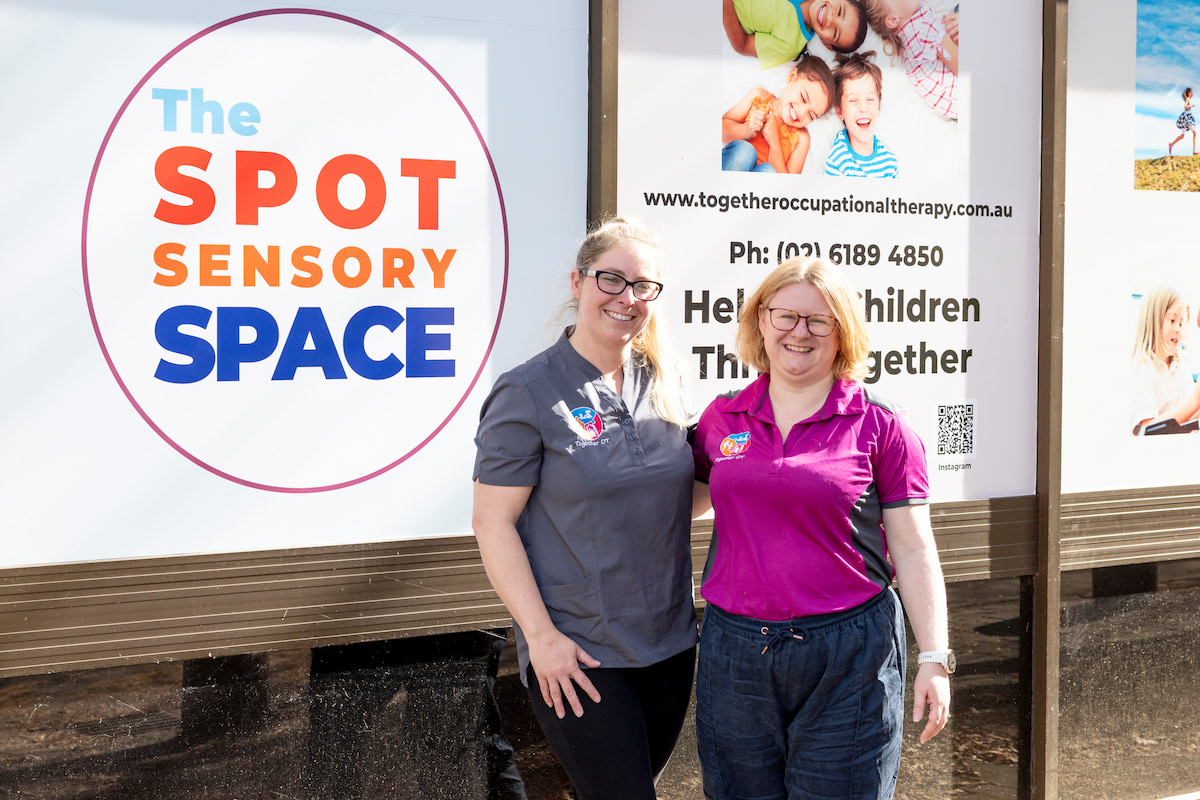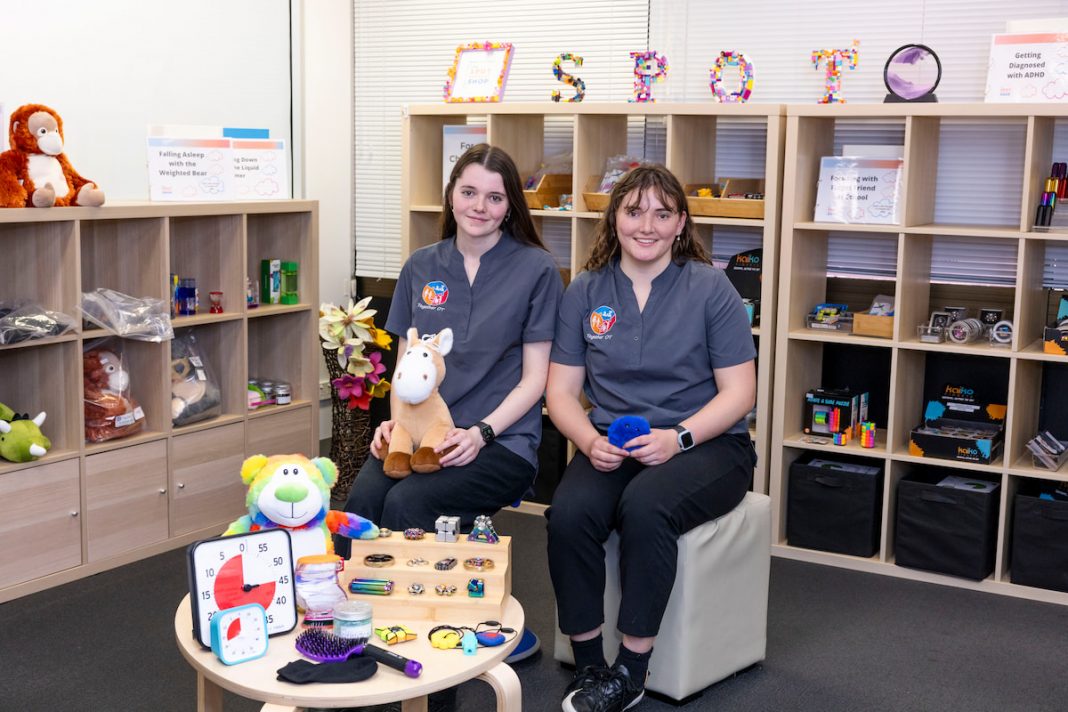Stop moving, pay attention. It’s one of the most frustrating phrases to hear for neurodiverse people who need that movement to pay attention. At The Spot Sensory Shop in Deakin, occupational therapists (OTs) are challenging false perceptions, one wobble cushion at a time.
Two months ago, director of Together OT, Christy Vagg, and assistant director, Karly Carter, began transforming the front room of their practice into a shop where allied health assistants can sell fidgets.

For parents and teachers, the word ‘fidget’ might conjure the whirring noise of fidget spinners, or perhaps the faint sound of Pop Its from the back of the classroom.
However, fidgets can be almost anything that provide the body sensory regulation, and they are not just helpful for kids, but grownups, too.
“We know that a lot of children and adults need to move their hands, doodle, and get that feedback from touching and feeling to help their body calm down, so that they can concentrate in meetings or in school,” says Christy.
You would be hard-pressed to find someone who has never had a self-soothing habit of chewing on a pen or pacing while on the phone. In many ways, humans are built to fidget.
“Our bodies are literally built sensory first, then motor, and then behaviour and learning,” says Christy. “So, if we can meet our sensory needs, the rest of the day flows.”
For the neurodiverse population, particularly those with autism and ADHD, the need to move around in order to focus can be tenfold.
“Some neurodiverse conditions come with either reduced strength and coordination or fine motor control, so weighted fidgets can also be really beneficial for reduced hand coordination,” says Karly.
Despite countless studies on the benefits of fidgets, particularly for those with ADHD, misconceptions about fidget toys are still alive and well in too many homes and classrooms.
Christy and Karly explain that some of the most common feedback they receive from parents and teachers surround whether fidgets can be quieter or more discreet. At The Spot, the answer is ‘yes.’
“We have fidgets that can fit in pencil cases, that are nice and quiet,” says Karly. “We have fidgets that adults can have in their pockets during meetings, so they can regulate without looking ‘silly’.”
“The world is changing at the moment to have a lot more neuro-acceptance,” says Christy. “There are still a lot of those misconceptions we’re seeing, particularly that a child can have their fidget once they’ve ‘earned it,’ meaning once they’re behaving.
“But it’s the other way around,” she says. “It’s like asking an asthmatic to just stop having an asthma attack, and then they can have their Ventolin. These are preventers.
“Some kids need their chew necklace to concentrate, they need their wobble cushion to sit at the dinner table instead of rocking in their chair,” she says.
“We’re also trying to show that, with both adults and children, someone might be multitasking, doing a hundred things at once, moving around, not looking at you, but it’s not that they aren’t paying attention,” says Karly. “They just have different body needs.”
“They can do one or the other. Either they dedicate all their energy into sitting still and miss the entire lesson, or they can just have the movement their body needs and be able to manage their emotions and social cues,” Christy explains.
The social rules of neurotypical society are firmly rooted; however, Christy and Karly are determined to make a difference, inch by inch, fidget by fidget.
“Just because somebody may look or sound or act a little bit different, doesn’t mean that they are not able to be a completely functioning member of society,” says Karly.
The Spot provides a safe, calm, colourful place for adults and children alike to try out OT-approved fidgets to see what might work for them.
“One of the reasons we decided to go down this pathway is, because of the nature of neurodiversity, most people don’t necessarily know what’s going to help them straight away,” says Karly. “They need to have that hands-on experience.”
In the future, Christy and Karly hope to access grant support to fund outreach programs to schools and workplaces that raise awareness for sensory processing needs.
“Even though one person may be receiving therapy, chances are there’s a whole bunch of other kids in the classroom who might also need a little bit of TLC,” says Karly.
Learn more at spotsensoryshop.com.au
Canberra Daily would love to hear from you about a story idea in the Canberra and surrounding region. Click here to submit a news tip.



